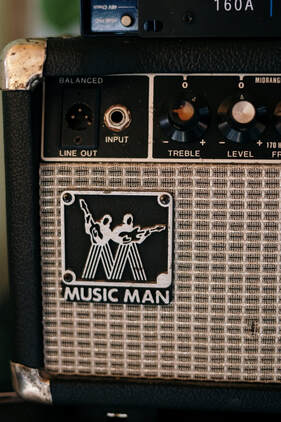 Pexels/PorapakApichodilok
Pexels/PorapakApichodilok I once invited a reporter to interview soon-to-be-laid-off employees, and the only counsel I gave them was, “Forget talking points. Say what’s on your heart.” Another time, I arranged a media tour of a highly contaminated industrial site when not so much as a plan for cleanup existed. And then there’s the time I convinced a worried and slightly defensive HR group, facing retirees incensed by benefits changes, not only to admit they’d communicated poorly but – no doubt unsettling a lawyer or two – to make that admission to the retirees themselves, in person.
Incredibly, every one of those examples came out positive. Was I lucky? Probably. Was I reckless? I don’t think so.
That’s not to say the risks weren’t huge. So why make those choices when the easy thing to do was to send out carefully worded statements?
One, my clients embraced compassion, transparency and authenticity.
Two, I was – and am – rooted in PR as a relational endeavor. (It’s even in the name.) That means making connections, having empathy, being champions of openness and honesty.
Never before in the history of our profession, or in our society, has relational PR been more important than it is right now.
Public distrust of once-respected institutions is at an all-time high. Conspiracy theories abound. People no longer agree to disagree; you’re either “right” or you’re “wrong,” and “wrongness” calls down the harshest penalties. There’s no middle ground because people aren’t connected to one another or to those institutions.
That’s where knowledgeable, experienced PR professionals make a difference.
Building Connections
We demand truth, transparency, integrity and empathy from our clients. We stand upon those principles when we engage with our audiences. We build the connections – mutual understanding if not agreement – by lifting up what’s done right and driving change when it’s done wrong.
Sadly, there are institutions out there that think PR is no more than sanitized statements, cheery social posts and creative ways to say “no comment.”
Those of us who embrace relational PR know better. We also demand better.
That’s where the Public Relations Society of America (PRSA) shines. As a network of professionals, we share a strong commitment and powerful insights that can repair the disconnect. We can – we must – be the conscience of our clients, holding ourselves and them accountable. That’s best done collectively, with each of us connected through an association that educates and advocates.
And it’s also a lot of fun!
For those who aren’t part of PRSA and our West Michigan chapter, now’s the time to join. For those who are, I encourage you to take every advantage that membership offers.
Can PR change the world? That I can’t say. But I believe we can change our companies and our communities, guiding the discourse with empathy, transparency and integrity.
That, in my view, is a pretty good start.
This blog originally appeared on the website for the West Michigan chapter of the Public Relations Society of America, tinyurl.com/2hn28hhc.










 RSS Feed
RSS Feed
